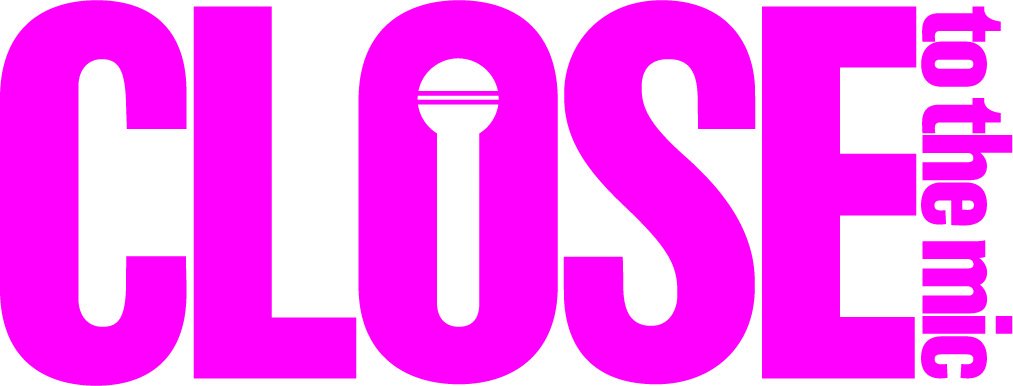Melanie Reid: “He’s a lesson to us all”
By Sonia Yee
Melanie Reid is the host and producer of ‘Peter Ellis, The Creche Case and Me’. Image courtesy of Newsroom
Childcare worker, Peter Ellis, became the central figure of the Christchurch Civic Creche case when he was accused of sexually abusing children while working there in the early nineties. When the story hit the headlines, it sent shock waves through the garden city that reverberated around the country.
Thirty years on, the story has been turned into a podcast - Peter Ellis, The Creche Case and Me, which recently won two finalist awards in two categories Social Justice and Narrative Documentary at the New York Festivals Radio Awards announced this April. The series is produced by Newsroom and hosted by lead investigations editor, Melanie Reid.
Peter Ellis, 1993 on his way to court. Image supplied by Newsroom
Peter Ellis, The Creche Case and Me features eight, half-hour episodes with Reid drawing on archival audio of Peter Ellis that has never been heard until now.
We talked to host, Melanie Reid, to find out what it was like to revisit those stories through the podcast.
“To be honest, it was just like it was yesterday,” says Reid.
“It was very vivid in my memory [and] in the last 30 years I've thought about it and revisited it so much that going back to it wasn't difficult because it had always been a part of my life,” she says.
Covering the case was career changing for Reid, who afterwards landed her dream job working as a reporter for 60 minutes. In the series, she examines the media’s reporting of the case, including reflecting on her own.
Melanie Reid interviews Peter Ellis 1993, image courtesy of Newsroom.
What became the focus of the media’s attention was Ellis’ sexual orientation. Reid admits that in covering the case she was under a huge amount of pressure to ‘get the dirt’.
“Yes, there always was [that pressure], but there wasn't any dirt,” she says.
“In a way, the dirt ended up being that it hadn't happened. But at the time I didn't really know that, and everyone was saying it had happened, so it was kind of difficult,” she says.
A huge amount of hysteria and media frenzy surrounded the Christchurch case. As a young journalist immersed in that environment, Reid says it was hard not to be affected.
“We walked a very narrow line because we needed to interview people who believed Peter had abused the children, as well as having to interview people who believed they hadn't been abused,” Reid says.
The media played a big role of feeding into the mounting fear, and despite Ellis claiming his innocence, the social climate informed the verdict. By the end of the trial in June 1993, Ellis was convicted on 16 counts of sexual abuse against seven children at the creche.
Reid says the outcome wasn’t helped by government agencies who became involved in the case, including ACC, social welfare, the police, counseling agencies, and the judge - all were convinced that Ellis was guilty. She says even more convincing was when the women creche workers were rolled into the case.
“But I never really knew anything until I talked to the girl who retracted her claims against Peter. [A woman] we call Ruby in the podcast, and that's when I knew absolutely,” says Reid who adds when covering any story, “I put myself into a neutral zone to not have a view, you just present the facts.”
Newsroom lead investigations editor, Melanie Reid. Image supplied by Newsroom.
Today, we live in a different cultural climate, and there has been a push for greater acceptance and a deepening of understanding around diversity and inclusion, especially around LGBTQIA+ rights, so would Ellis’ case have played out differently if it happened today?
Reid isn’t convinced that it would.
“I think we've seen the same thing today with a kind of delusion in hysteria and misinformation…. there was kind of no place for dissention [because] there was so much conviction that he was guilty,” she says.
The ‘ring fencing’ that happened in the creche case has also played out in more recent cases, too.
Reid uses the Oranga Tamariki Hastings ‘uplift investigation’ as an example where people believed the children in question needed to be taken from their foster caregivers. After the children were transferred back to their extended whanau, it was discovered that a man at the family home was known to have displayed inappropriate sexual behaviour towards children.
“It could all happen again,” says Reid of the power of authorities feeding into an investigation.
In Ellis’ case there was no hard evidence, yet his conviction culminated in a prison sentence that wouldn't see him released until February 2000.
Ellis passed away almost two decades later in 2018 and even then, his name had never been cleared. However, last year the Supreme Court quashed the convictions, citing a serious miscarriage of justice.
Looking back, given the outcome of Ellis’ conviction and the Supreme Court decision, Reid feels she could have done more.
“I had gotten his case back to the Court of Appeal, [and] I had reported on it endlessly, but I think a lot of us felt that we could have done more,” she says.
Knowing what she knows now, Reid has advice for young journalists tasked with covering these types of cases: “What is presented to you through the establishment and the mainstream view is not always the truth - the truth is something that you might believe, and facts are something that you can prove.”
In making the podcast, Reid says it gives people a chance to get to know and understand Ellis in a way that was never possible “within the confines of a tight and bright current affairs programme”.
“So many people [after listening] to the podcast have said to me things like, “I just wanted him to be my friend…I just liked him so much,” says Reid who worked closely with producer and writer Bonnie Sumner to produce the podcast.
It took Reid and Sumner about twelve months to complete the podcast, which followed the production of a video series about the case.
That hard work has helped to put Peter Ellis, The Creche Case and Me on the local and international map with its achievements at the New York Festivals Radio Awards, and closer to home, it has also been nominated for this year’s Voyager Media Awards with winners to be announced in May.
Producer Bonnie Sumner says the team is very happy about the podcast being acknowledged for awards: “Because this is an historically significant piece of work, not only for Peter Ellis and his family and those involved, but for our social history [and] the effect the events had on New Zealand culture and society,” says Sumner.
Reid is proud too, of course, but it goes beyond the podcast.
“I'm most proud of him… I’m proud of Peter and how generous and forgiving he was. He’s a lesson to us all,” says Reid.
Listen to the first three episodes above or head to the full series for more.
Podcast Production Team
Melanie Reid - Presenter and producer
Bonnie Sumner - Producer and writer
Paul Enticott - Editor
Lewis Tennant - Podcast producer
Age Pryor - Composer





